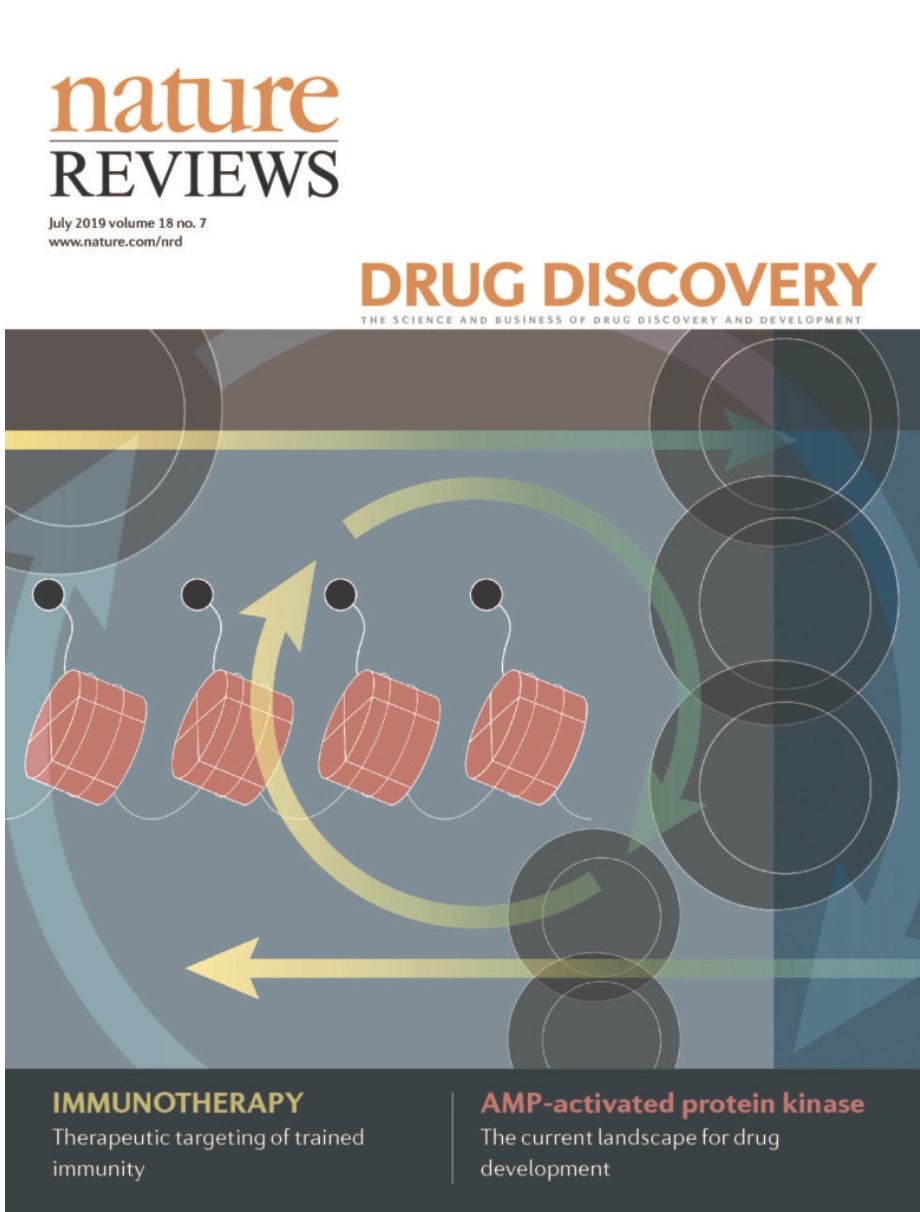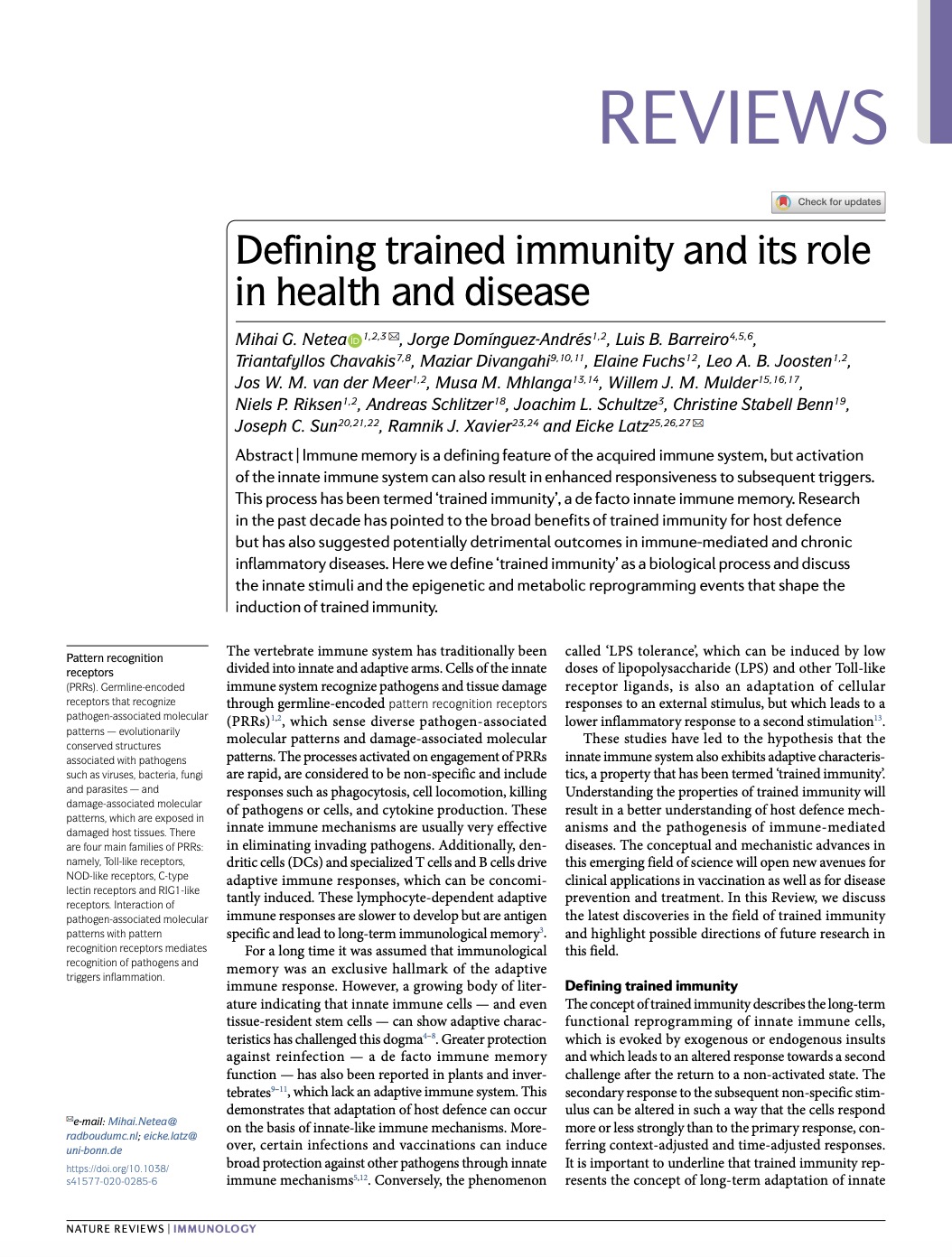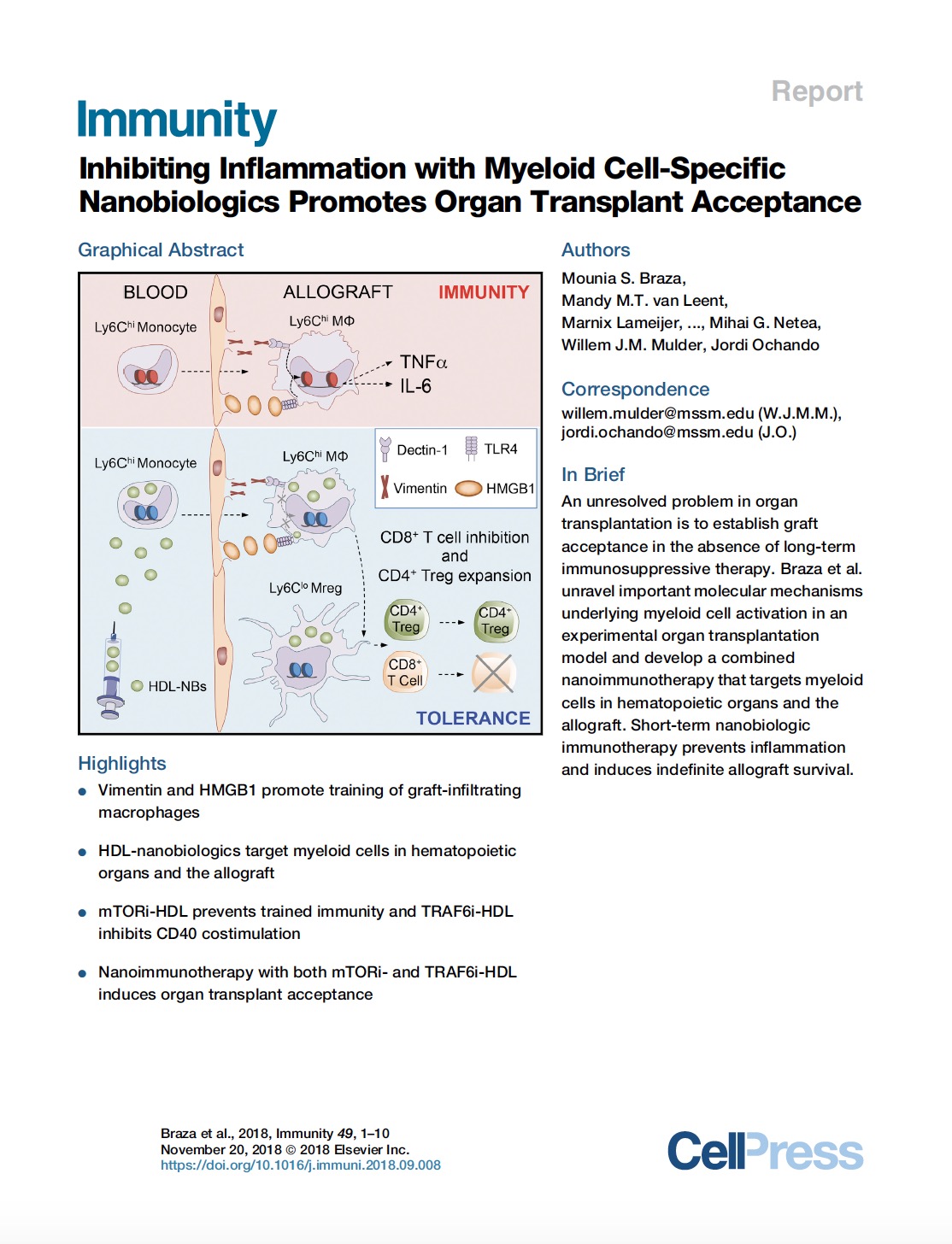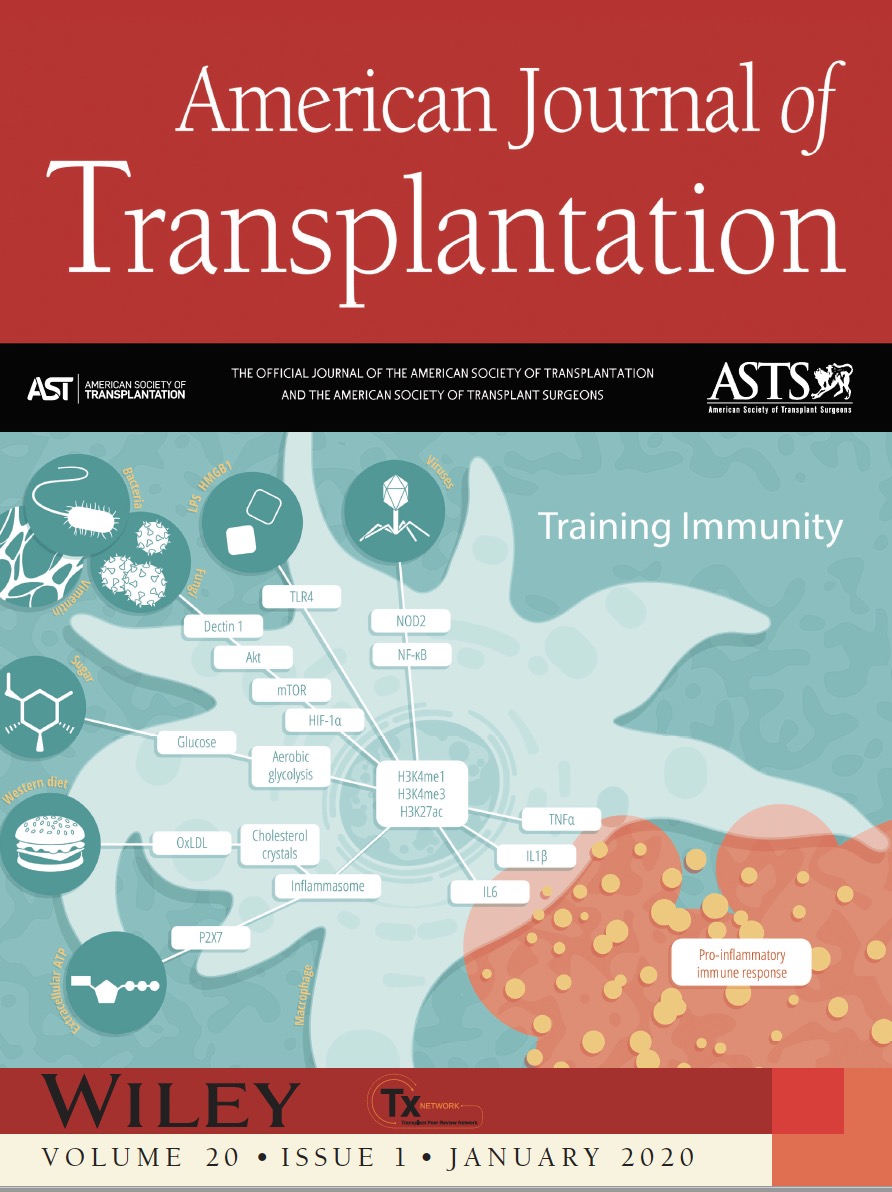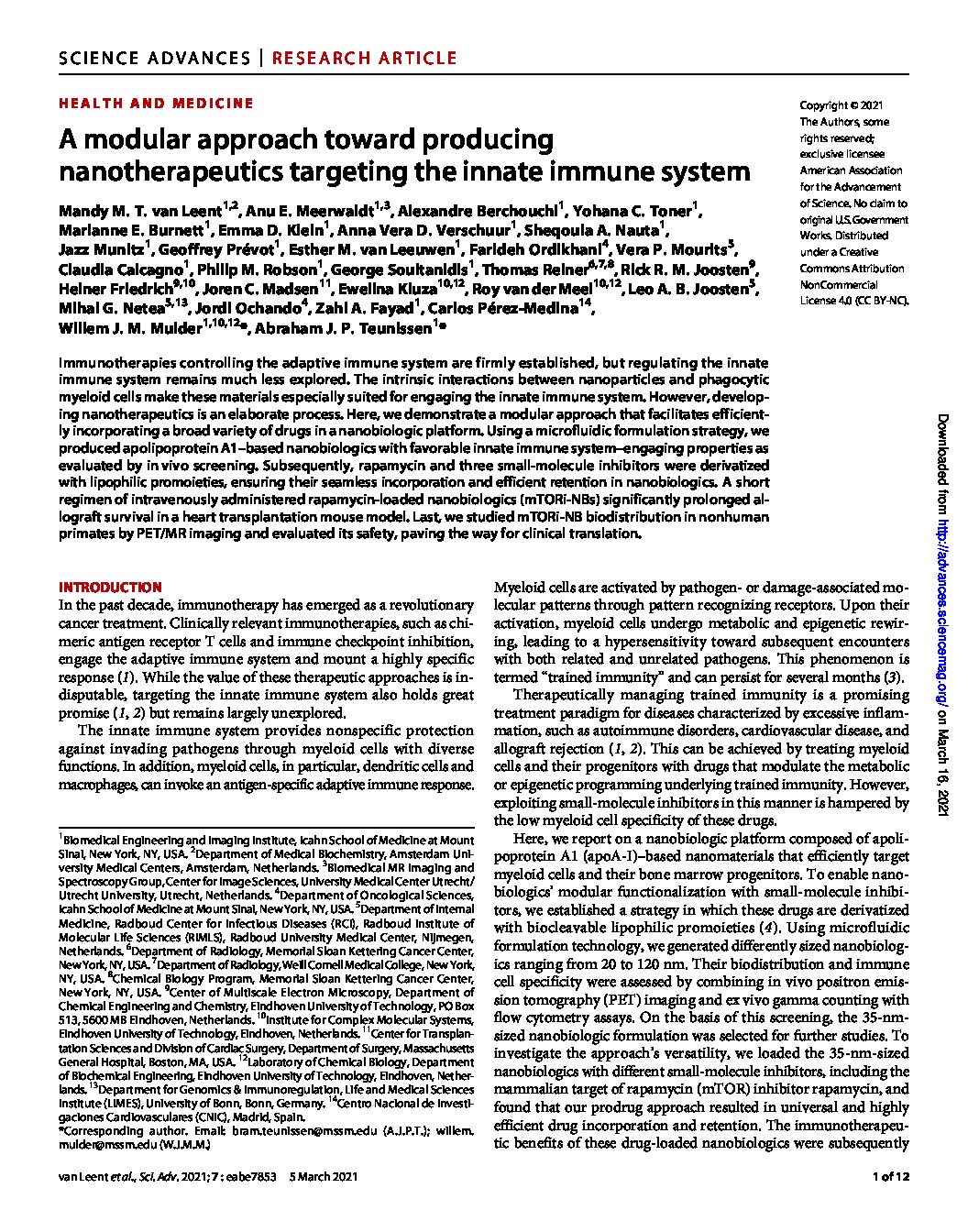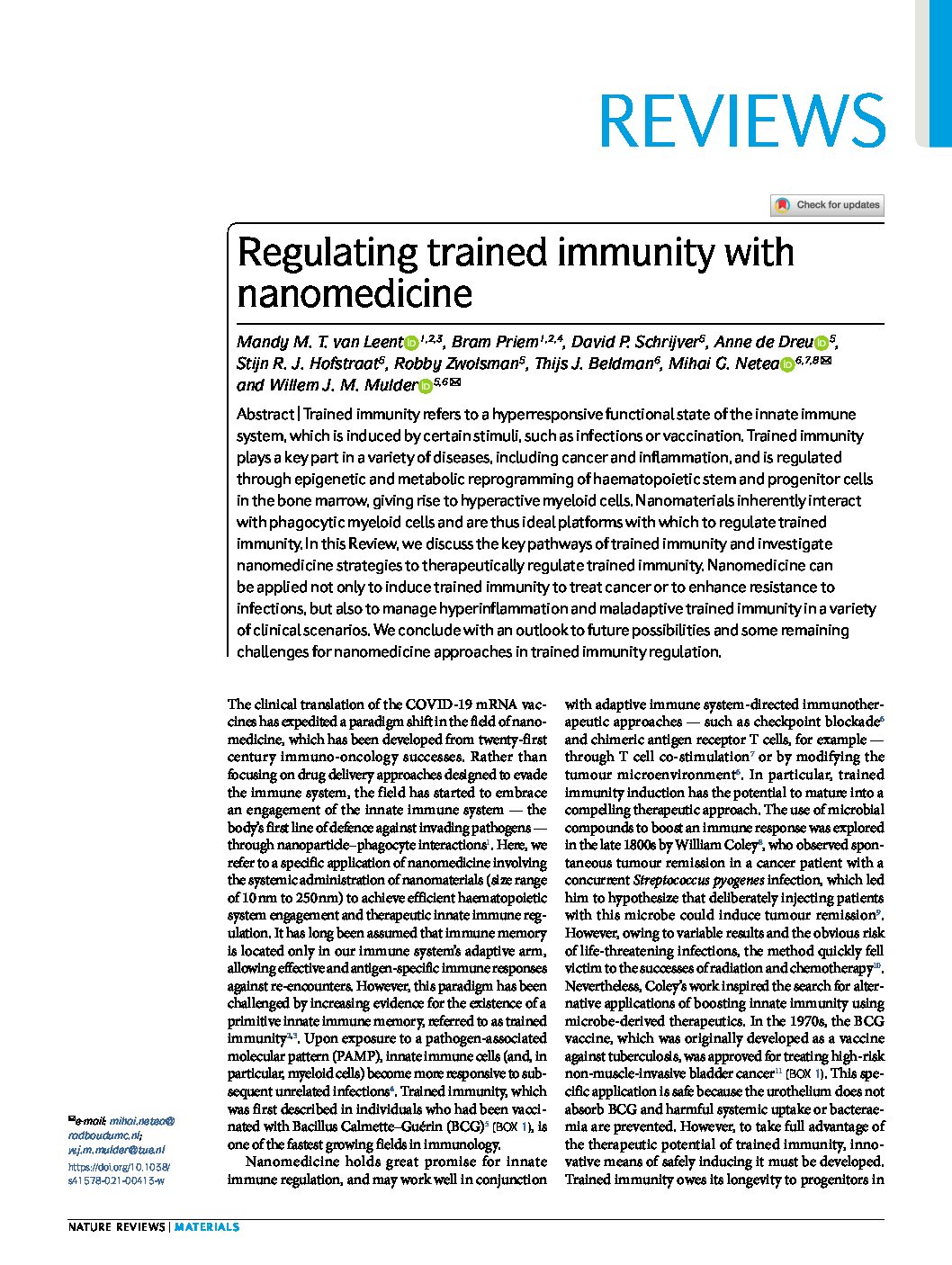INNATE IMMUNITY, TRAINED IMMUNITY & MYELOID CELLS
Experimental and clinical studies have uncovered well-defined types of immune dysregulation occurring in different types of diseases. One concept that has rapidly gained consensus is that autoimmune and inflammatory diseases are caused by inappropriate activation of immune mechanisms at the wrong time and at the wrong place. On the other side of the immune dysregulation coin, failure of the immune system to combat malignant processes due to immunosuppression compromises the mechanisms that lead to tumor elimination.
In the past decade, a growing body of evidence has uncovered primitive memory features of our innate immune system. Upon exposure to certain microbe-associated molecular patterns, particularly myeloid cells become more resistant to subsequent unrelated infections. This innate immune memory, first described in individuals that were BCG vaccinated, is called ‘trained immunity’. Trained immunity owes its longevity to progenitors in the bone marrow, which undergo metabolic and epigenetic rewiring to durably produce ‘trained’ myeloid cells.
IMMUNOTHERAPY & NANOBIOLOGIC THERAPEUTICS
The immunotherapy revolution provides hope to patients who were previously deemed uncurable. Immunotherapy involves mobilizing specific compartments of our immune system to fight off disease. While the current clinical successes are achieved with immunotherapy strategies targeting the adaptive immune system, TTxD focuses on therapeutically regulating innate immune responses by controlling myeloid cell function at the site where they generated, the bone marrow. Myeloid cells are a major cellular compartment of the innate immune system comprising monocytes, dendritic cells, neutrophils and macrophages. TTxD targets myeloid cell function to combat some of today’s most detrimental diseases, including cancer and hyperinflammation in COVID-19 and after transplantation.
TTxD develops nanobiologic therapeutics that target bone marrow progenitor cells to either regulate trained immunity or inhibit inflammation. Nanobiologics are tiny delivery vehicles composed of our body’s own molecular building blocks. TTxD has developed innovative chemistry to equip nanobiologics with immunoregulatory compounds in a truly modular fashion. Using this approach, TTxD has established a comprehensive library of immunomodulatory nanobiologic therapeutics. TTxD’s trained immunity-inducing nanobiologics ‘train’ progenitors in the bone marrow to produce myeloid cells that harness the power to fight off malignancies. Conversely, TTxD’s inflammation-inhibiting nanobiologic therapeutics manage hyperinflammation by targeting epigenetic and metabolic pathways in myeloid (progenitor) cells.
RECENT PUBLICATIONS






